What do you think?
Rate this book


1023 pages, Paperback
First published January 1, 1605
“Finally, from so little sleeping and so much reading, his brain dried up and he went completely out of his mind.”
…the castellan brought out the book in which he had jotted down the hay and barley for which the mule drivers owed him, and, accompanied by a lad bearing the butt of a candle and the two aforesaid damsels, he came up to where Don Quixote stood and commanded him to kneel. Reading from the account book – as if he had been saying a prayer – he raised his hand and, with the knight’s own sword, gave him a good thwack upon the neck and another lusty one upon the shoulder, muttering all the while between his teeth. He then directed one of the ladies to gird on Don Quixote’s sword, which she did with much gravity and composure; for it was all they could do to keep from laughing at every point of the ceremony, but the thought of the knight’s prowess which they had already witnessed was sufficient to restrain their mirth.
“And if,” said Sancho, “those gentlemen wish to know who the valiant one was who did this to them, your Grace may inform them that he is the famous Don Quixote de la Mancha, otherwise known as the Knight of the Mournful Countenance.”
At this the knight inquired of his squire what had led him to call him by such a title at that particular moment.
“I can tell you,” said Sancho. “I was looking at you for a time by the light of the torch that poor fellow carried; and truly, your Grace now has the worst-looking countenance that I have ever seen, whether due to exhaustion from this combat or the lack of teeth and grinders, I cannot say.”
“One plays the ruffian, another the cheat, this one a merchant and that one a soldier, while yet another is the fool who is not so foolish as he appears, and still another the one of whom love has made a fool. Yet when the play is over and they have taken off their players’ garments, all the actors are once more equal.”
“Yes,” replied Sancho, “I have seen all that.”
“Well,” continued Don Quixote, “the same thing happens in the comedy that we call life, where some play the part of emperors, others that of pontiffs – in short, all the characters that a drama may have – but when it is all over, that is to say, when life is done, death takes from each the garb that differentiates him, and all at last are equal in the grave.”
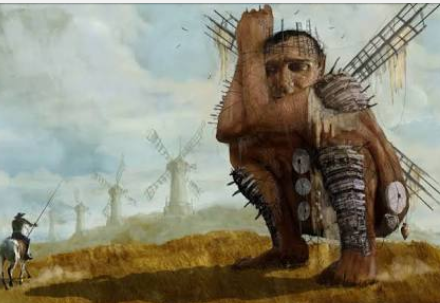

 come to my blog!
come to my blog!
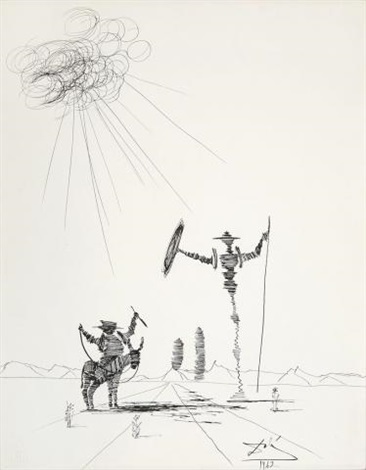
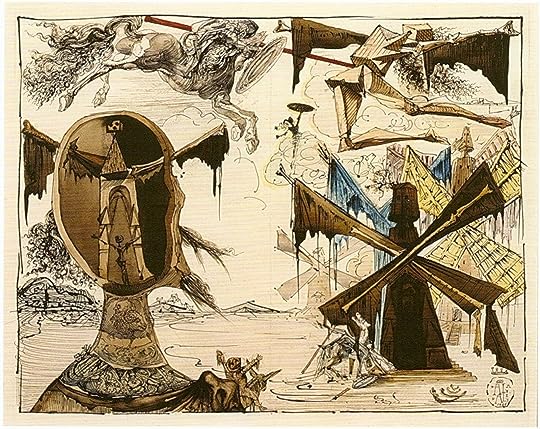
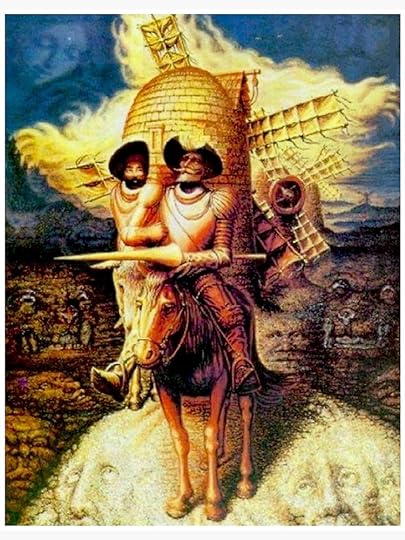


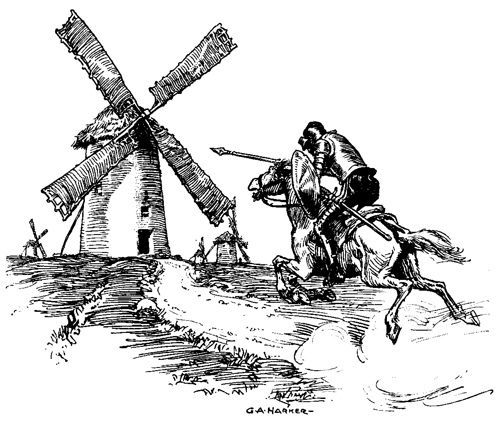


Without making any boast of it Sancho Panza succeeded in the course of years, by devouring a great number of romances of chivalry and adventure in the evening and night hours, in so diverting from him his demon, whom he later called Don Quixote, that his demon thereupon set out in perfect freedom on the maddest exploits, which, however, for the lack of a preordained object, which should have been Sancho Panza himself, harmed nobody. A free man, Sancho Panza philosophically followed Don Quixote on his crusades, perhaps out of a sense of responsibility, and had of them a great and edifying entertainment to the end of his days.(This is the entire text of his parable "The Truth about Sancho Panza"; it and others can be found here.)
